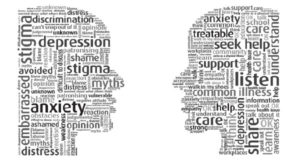Breaking the silence
By Nitasha Bhatia
“The more you talk about it the less shameful it becomes. It’s like any other lifelong condition, there needs to be a better understanding of it as a legitimate medical problem.”
Aparna Nancherla, an American-born Indian comedian, speaks openly about her personal battle with depression in her stand-up shows. Earlier this year, Variety Magazine named her one of the ”˜ten comedians to watch out for in 2016’. She has made a name for herself on the American stage, now regularly featuring on numerous television shows, including Conan O Brien’s late night talk show.
But what strikes me most about Aparna isn’t her clever, witty and hilarious punch lines. Instead, it is her courageous choice to use her humour to address the topic of mental illness, an issue which is endemically stigmatised within our community.
The term ”˜mental illness’ encompasses a multitude of disorders that often have a debilitating effect on individuals and their loved ones. Some of the most common forms include anxiety, depression, bipolar disorder and schizophrenia.
In Australia, mental illness will affect one fifth of the population at some point during their lifetime (Australian Department of Health). Yes, one in five people. This could be your child, brother, sister, mother or father. It is an illness that does not discriminate and can affect anyone at any time.
While awareness of mental health conditions is gaining momentum in the wider Australian community, it is an issue that continues to be marked only by silence within our Indian community. According to the Queensland Health Department, Indian-Australians are considerably less likely to seek help for mental health conditions compared to the rest of the Australian population. This is despite Indians experiencing similar levels of psychological distress to other Australians.
Last year, BBC journalist Attika Choudhary created a powerful video that delved into the hidden mental health issues within the South Asian community. The YouTube video featured an Indian father who was suffering from depression and the inability for his own family to understand what was happening to him. The video highlighted how mental illness is often mistaken for personal weakness within the South Asian community.
When we are physically unwell there always seems to be some remedy readily available. When you have a headache, you are told to drink the Tulsi tea. When your tooth is hurting you chew on some cloves. However, when we are feeling down, we are told to ”˜be brave betee’ and just keep going. We have been conditioned to be stoic and get on with it. However, being stoic only masks the problem leading to more pain and misery in silence.
It was a heart-wrenching conversation I had with a close friend of mine that put this in perspective for me. She opened up to me about the depression she experienced in the years following her marriage breakdown. “I felt as though my heart had been ripped from my chest. I had no motivation, no will to live, I didn’t want to go anywhere. I wanted to shut myself away from the world.” She said, “My family did not want to hear about it, they thought I’d eventually snap out of it but I just continued to suffer in silence.”
This might be because in our culture the concept of izzat (honour or prestige) is deeply rooted in our social milieu. As Indians we celebrate the accolades, from churning out the finest doctors and lawyers to ensuring our children get into selective schools, moving to bigger houses and buying flashier cars. On the whole, our community is doing well and we should rightfully feel gratified.
Unfortunately, anything that doesn’t fit into our cultural norms are looked down upon. To admit to mental health issues would bring sharam (shame) to one’s family since it is so deeply stigmatised within the Indian community. Consequently, we contrive a façade that focuses only on the ”˜good’ times and conceals the ”˜bad’. We maintain our izzat at the expense of an individual’s health.
Recently, prominent Bollywood celebrities like Anushka Sharma and Deepika Padukone have started speaking about their own mental health issues in an attempt to challenge the existing beliefs. In an essay published on Deepika’s website, she spoke about her experience with depression and the misconceptions perpetuated within our community. “The most common reaction is, ”˜How can you be depressed? You have everything going for you. You are supposed to be the number one heroine, plush home, car, movies”¦ What else do you want?’ It’s not about what you have or don’t have.”
Indeed, it is not a question of what you do or don’t have. It is an illness that can potentially impact anyone.
One of the biggest obstacles for people suffering from mental illness is confronting the public stigma. As long as we continue to associate mental illness with sharam, our community will continue to fight a losing battle.
Even though it is commendable that celebrities are beginning to publicly speak about mental illness, that in itself is not enough. The movement to change must also come from the grassroots level. We all have a role in creating a mentally healthy community. It is important for all us to check up regularly and ask those we love if they are ok and open a dialogue within our group of friends and families to challenge the stigma. If we follow in Aparna and Deepika’s footsteps we are one step closer to breaking the silence.
As Aparna has said ”˜the more we talk the less shameful it becomes’.
Short URL: https://indiandownunder.com.au/?p=7353

